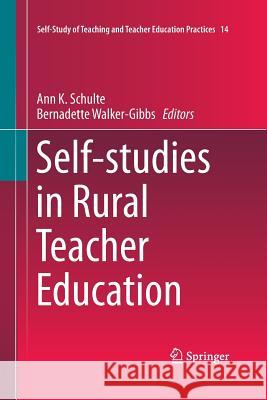Self-Studies in Rural Teacher Education » książka
topmenu
Self-Studies in Rural Teacher Education
ISBN-13: 9783319371504 / Angielski / Miękka / 2016 / 202 str.
Kategorie:
Kategorie BISAC:
Wydawca:
Springer
Seria wydawnicza:
Język:
Angielski
ISBN-13:
9783319371504
Rok wydania:
2016
Wydanie:
Softcover Repri
Ilość stron:
202
Waga:
0.30 kg
Wymiary:
23.39 x 15.6 x 1.14
Oprawa:
Miękka
Wolumenów:
01
Dodatkowe informacje:
Wydanie ilustrowane











